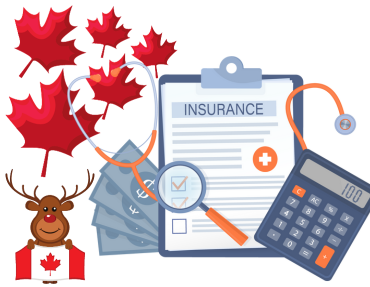Welcome to the comprehensive guide on the Ontario Health Card. As a journalist, it is my job to inspire curiosity in readers and provide them with valuable information. In this guide, we will cover everything you need to know about the Ontario Health Card, from eligibility requirements to tips and tricks for making the most of your card. The Ontario Health Card is a crucial document that provides access to healthcare services in Ontario, Canada. Whether you are a new resident in Ontario or a long-time resident looking to renew your health card, this guide will provide you with all the information you need. So, let’s dive in and explore the world of Ontario Health Card together.
Introduction to Ontario Health Card
The Ontario Health Card is a vital document for residents of Ontario, Canada, as it grants access to healthcare services that are funded by the government. The card is issued by the Ontario Ministry of Health and Long-Term Care and is free of charge. It is a personal identification card that contains the holder’s name, photo, date of birth, and a unique identification number. The card also shows the date of expiry, which is usually five years from the date of issue. The Ontario Health Card covers a wide range of medical services, including doctor’s visits, hospital stays, laboratory tests, and prescription drugs. It also includes coverage for some dental services for children under 18 years old and seniors over 65 years old. The card does not cover all medical services, such as cosmetic surgery or routine eye exams. However, some of these services may be covered by private health insurance plans. It is essential to carry the Ontario Health Card at all times and present it whenever you need to access healthcare services. In case of an emergency or unexpected illness, having the card on hand can save time and potentially even save your life. If you are new to Ontario or have never had an Ontario Health Card before, you will need to apply for one to access healthcare services in the province.
Eligibility for Ontario Health Insurance Plan (OHIP)
To be eligible for Ontario Health Insurance Plan (OHIP), you must meet certain requirements. Firstly, you must be a Canadian citizen, permanent resident, or a person registered as an Indigenous person under the federal Indian Act. Additionally, you must have been physically present in Ontario for at least 153 days in any 12-month period and have made Ontario your primary place of residence. If you are a new resident to Ontario, you may be eligible for OHIP after three months of residency. However, during this waiting period, it is advisable to purchase private health insurance to cover any medical expenses that may arise. If you are a returning resident to Ontario, you may be eligible for OHIP coverage immediately upon your return. It is important to note that if you leave Ontario for more than seven months in a row, your OHIP coverage will be suspended and you will need to reapply for coverage upon your return. If you are unsure about your eligibility for OHIP, it is recommended to contact the Ministry of Health and Long-Term Care for clarification. It is important to ensure that you are eligible for OHIP before applying, as failure to meet the eligibility criteria can result in delays or rejection of your application.
How to Apply for an Ontario Health Card
To apply for an Ontario Health Card, you must be a resident of Ontario and have a valid immigration status. If you meet these criteria, you can apply for OHIP coverage by filling out an application form available online or at ServiceOntario centres. The application requires you to provide personal information such as your full name, date of birth, address, and contact details. You will also need to provide proof of identity and residency in Ontario, such as a driver’s license or passport and a utility bill or lease agreement. If you are a Canadian citizen, you will need to provide your proof of citizenship, such as a birth certificate or passport. Once you have completed the application and gathered all the necessary documents, you can submit them in person at a ServiceOntario centre or mail them to the OHIP office. It usually takes about four to six weeks to process your application and receive your health card in the mail. It is important to note that if you are applying for OHIP coverage for the first time, there is a three-month waiting period before your coverage becomes effective. Therefore, it is recommended that you apply for OHIP as soon as possible after moving to Ontario or becoming eligible for coverage to ensure that you have access to healthcare services when you need them.
Renewing Your Ontario Health Card: What You Need to Know
Renewing your Ontario Health Card is a crucial process that ensures you maintain access to healthcare services in the province. Your health card must be renewed every five years, and the renewal process usually begins three months before the expiration date. You will receive a renewal notice in the mail from ServiceOntario, which contains instructions on how to renew your card. To renew your health card, you must complete an application form and provide supporting documents that prove your eligibility for OHIP. These documents may include a passport, driver’s license, or birth certificate. If you are an international student or worker, you may need to provide additional documentation, such as a study permit or work permit.
It is essential to note that failing to renew your health card on time can result in a lapse of coverage, meaning you won’t be able to access healthcare services until you renew your card. Therefore, it is advisable to start the renewal process early and ensure you submit all the necessary documents before the expiry date. If you have recently moved or changed your name, you must update your information with ServiceOntario before renewing your card. This will ensure that your new card reflects the correct details.
In conclusion, renewing your Ontario Health Card is a simple but vital process that should not be overlooked. It guarantees that you continue to receive healthcare services when you need them. Remember to keep track of your renewal date and submit all necessary documents on time to avoid any disruptions in coverage.
Using Your Ontario Health Card: Accessing Healthcare in Ontario
Using your Ontario Health Card is the key to accessing healthcare in Ontario. It provides you with access to a wide range of medical services, including doctor’s visits, hospital stays, and diagnostic tests. When you arrive at a healthcare facility, you will need to present your health card to the receptionist or nurse. The healthcare provider will then use your health card information to bill the Ontario Ministry of Health for the services you receive.
It is important to note that not all medical services are covered under OHIP. Some services, such as dental care and prescription medication, require additional coverage or out-of-pocket payment. It is essential to speak with your healthcare provider or pharmacist about any additional costs associated with your treatment plan.
If you require medical care while travelling outside of Ontario but within Canada, your OHIP coverage will still apply. You will need to present your health card at the healthcare facility and inform them that you are an Ontario resident. However, if you are travelling outside of Canada, it is recommended that you obtain additional travel insurance as OHIP does not cover all medical expenses incurred abroad.
In conclusion, using your Ontario Health Card is crucial for accessing healthcare in Ontario. It ensures that you receive necessary medical attention without having to worry about paying out-of-pocket expenses for most medical services. However, it is important to be aware of any additional costs associated with certain treatments and to obtain additional insurance when travelling outside of Canada.
Lost or Stolen Ontario Health Cards: What to Do
If you have lost your Ontario Health Card or it has been stolen, there are a few steps that you need to take in order to protect yourself and get a new card. The first step is to report the loss or theft of your card to ServiceOntario as soon as possible. You can do this by calling the ServiceOntario INFOline at 1-866-532-3161. Once you have reported the loss or theft, ServiceOntario will cancel your old card and issue you a new one. It is important to note that there may be a fee for replacing a lost or stolen card.
If you believe that your Ontario Health Card has been stolen, it is also important to contact the police and file a report. This will help protect you from any potential identity theft or fraudulent use of your health card.
It is important to remember that you should never lend your Ontario Health Card to anyone else. Your health card contains personal information that should be kept confidential. If someone else uses your health card, it could lead to incorrect medical information being recorded on your file, which could impact your future healthcare.
In conclusion, if you lose or have your Ontario Health Card stolen, it is crucial to act quickly and report it to ServiceOntario and the police if necessary. By taking these steps, you can protect yourself from identity theft and ensure that you have access to healthcare when you need it.
Tips and Tricks for Making the Most of Your Ontario Health Card
Making the most of your Ontario Health Card can save you time, money, and hassle when accessing healthcare services. One tip is to always carry your card with you, as you never know when you may need it. Another useful trick is to keep a digital copy of your card on your phone, in case you forget to bring the physical card or it gets lost. Additionally, it is important to keep your information up-to-date, especially if you move or change your name. You can update your information by visiting a ServiceOntario centre or through the online portal. Another way to make the most of your health card is to understand what services are covered under OHIP. While OHIP covers most medically necessary services, there are some exceptions such as cosmetic surgery and certain prescription medications. It is also important to know that some services may require a referral from a doctor or specialist. Lastly, it is worth noting that some healthcare providers may offer additional services that are not covered by OHIP but may be beneficial for your health. These services may include physiotherapy, chiropractic care, or acupuncture. Overall, by following these tips and tricks, you can ensure that you are making the most of your Ontario Health Card and accessing the healthcare services you need.
The Ontario Health Card is a vital tool for accessing healthcare services in Ontario. It provides peace of mind knowing that you are covered in case of an emergency. Understanding the eligibility requirements and how to apply or renew your card is essential. Additionally, knowing what to do in case of a lost or stolen card can save you time and stress. However, there are still some concerns about the accessibility and quality of healthcare in Ontario. The COVID-19 pandemic has highlighted some of the gaps in the system, particularly for marginalized communities. As we navigate these challenges, it’s important to remember that healthcare is a fundamental human right, and we must work towards creating a more equitable and accessible system for all Ontarians.






Leave a Reply